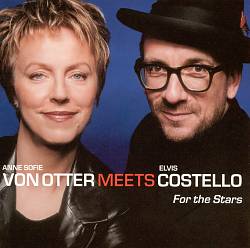I was asked this question in an interview in which I talk about Dedication–now on sale at AllRomanceEbooks (cheaper than amazon or kindle!) but the question of the day there is what rules you tolerate being broken in romance. Many thanks to Layna Pimentel for having me visit, and please go visit–we’re a bit quiet there at the moment.
You can also find out which Austen character I’d like to be and it’s such a fascinating topic I thought I should extend it here.
Lizzy Bennett. No. Not even if you snag the 1995 Colin Firth. A lifetime of jollying him along and trying to stop him telling Bingley and Jane what to do?–no thanks. Besides which, exactly how often do you expect him to parade around in a wet shirt?
 |
| Wowsa |
Mary Crawford. Smart, manipulative, daring, but brother Henry has possibly screwed up her chances for the good marriage she needs to shine. Besides which, she’s the SISTER of the best looking guy in the movie, I mean the book.
Anne Wentworth nee Elliot. No, not even if you snag the 1995 Ciaran Hinds. Life aboard ship, even as the Captain’s lady, was nasty (ruinous to the complexion too), and how will Wentworth take to life ashore in peacetime? The last time he diverted himself by flirting and marrying. Uh oh.
Emma. Oh dear lord no. Rich and clueless and has to sleep with Mr. Knightley.
Dashwood sisters–see above re Hinds and Firth, and I always thought Alan Rickman looked particularly jowly in that role. Marianne, I’m sure, is destined for a short life of ill health following her nearly fatal strep throat, and Elinor is… well, you know what Elinor is, it makes me fall asleep just thinking about her.
Catherine Tilney nee Morland. Exactly how many children is she supposed to have? Awful father-in-law and brother-in-law? No. (But she is married to Henry…)
Lady Catherine de Bourgh. Now we’re talking. Clueless but it doesn’t matter because she’s rich and powerful. It’s all about the power, baby.
Now you see where this is going, don’t you? So tell me how violently you disagree, or visit Layna Pimentel to see if you agree with my choice there.


 Today is my writing day and I’m all set up in the eyrie (ok it’s on the second floor but eyrie sounds so much better) with a thermos jug of tea and snacks which I seem to have eaten already. I’ve dusted off my writing CDs, an opera compilation, Ann Sofie von Otter’s crossover album with Elvis Costello For the Stars, and Handel’s Messiah. I know, weird, but I like to listen to vocal music when I write. I have yoga blocks and a couple of short workout videos bookmarked if I need to take a break.
Today is my writing day and I’m all set up in the eyrie (ok it’s on the second floor but eyrie sounds so much better) with a thermos jug of tea and snacks which I seem to have eaten already. I’ve dusted off my writing CDs, an opera compilation, Ann Sofie von Otter’s crossover album with Elvis Costello For the Stars, and Handel’s Messiah. I know, weird, but I like to listen to vocal music when I write. I have yoga blocks and a couple of short workout videos bookmarked if I need to take a break.





